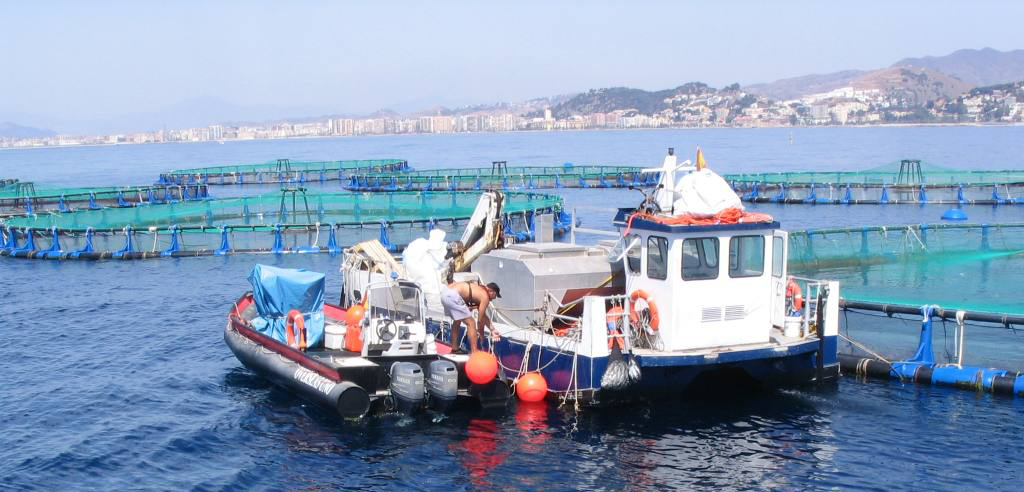The European Commission has just approved a set of investments worth 243 million euros under the LIFE programme for projects in favour of nature, the environment and quality of life in Europe’s transition towards a more sustainable and low-carbon future.
In the case of Spain, we mentioned the LIFE AQUAPEF project (Promote the effective implementation of the Product Environmental Footprint in the Mediterranean aquaculture sector), coordinated by AZTI Tecnalia and involving Forkys Aquacultures SA, Skironis Aquaculture SA and the Hellenic Centre for Marine Research, from Greece; Katholieke Universiteit Leuven, from Belgium; and INGENET – Ingeniería de Informática y Control S.L.U. and Cultivos Marinos de Guardamar, from Spain.
PURSUING THE IMPLEMENTATION OF THE PEF IN THE MEDITERRANEAN AQUACULTURE SECTOR
Marine aquaculture helps to meet the growing demand for fish and fishery products, but can also negatively affect water quality (eutrophication), benthic biodiversity (seabed) and the health of wild fish stocks. Under this premise, the LIFE AQUAPEF project will seek to introduce the EU Product Environmental Footprint (PEF) to aquaculture with a view to mitigating these impacts.
The PEF is a methodology for assessing the environmental effects of a product or service based on Life Cycle Analysis and aims to reduce the environmental impacts of products or services, taking into account the activities in the supply chain (from the extraction of raw materials, through production and use, to final waste management). It is thus one of the main EU initiatives to promote product sustainability.
While the European Commission developed PEF methodologies in support of the EU Roadmap towards a more resource-efficient Europe, there is nevertheless much work to be done to support the implementation of PEF in many sectors, including aquaculture. And this is where LIFE AQUAPEF aims to act, how? by developing a methodology and tools to support the implementation of the FMP in the Mediterranean aquaculture sector.
This, as outlined in the approved project description, will involve establishing a framework that all stakeholders (businesses, associations, consumers and public bodies) are satisfied with; designing a standardised data collection protocol for aquaculture inventories; and obtaining representative datasets for Mediterranean fish farms. These will be used to develop protocols for assessing environmental performance, identify improvement strategies with the greatest potential for reducing environmental impact and propose biological or ecological impact categories to complement the FEP assessment.
LIFE AQUAPEF will therefore work with the sector to collect data and develop protocols. To this end, three studies will be carried out in three Mediterranean fish farms to demonstrate that it is possible to reduce the overall environmental impact of aquaculture by 10% using FEPs. Additional trials will be planned in Greece, Spain, Italy, UK and Ireland. The project will also be used to raise social awareness of sustainable products and transfer the results to the entire EU aquaculture industry.
In addition, LIFE AQUAPEF is expected to contribute to the implementation of several EU policies, including the Strategic Guidelines for the Sustainable Development of EU Aquaculture, the Circular Economy Action Plan, the Marine Strategy Framework Directive, the 7th Environmental Action Programme and the single market for organic products.
Source: Ipac Aquaculture.
